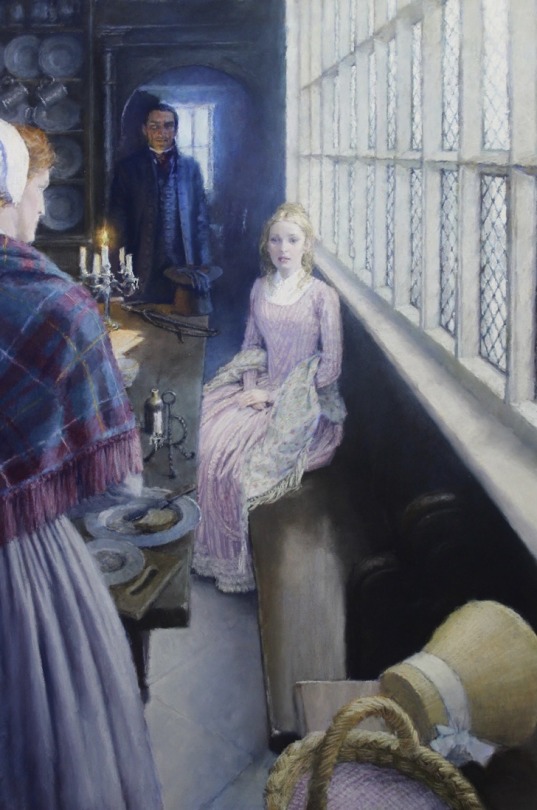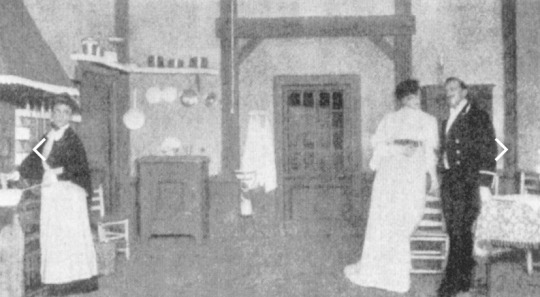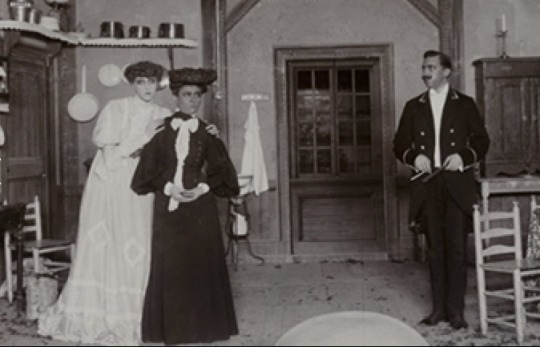Text
Culturally we bear witness to this madness every day. We can all tell endless stories of how it makes itself known in everyday life. For example, an adult white male answers the door when a young Asian male rings the bell. We live in a culture where without responding to any gesture of aggression or hostility on the part of the stranger, who is simply lost and trying to find the correct address, the white male shoots him, believing he is protecting his life and his property. This is an everyday example of madness. The person who is really the threat here is the home owner who has been so well socialized by the thinking of white supremacy, of capitalism, of patriarchy that he can no longer respond rationally.
White supremacy has taught him that all people of color are threats irrespective of their behavior. Capitalism has taught him that, at all costs, his property can and must be protected. Patriarchy has taught him that his masculinity has to be proved by the willingness to conquer fear through aggression; that it would be unmanly to ask questions before taking action. Mass media then brings us the news of this in a newspeak manner that sounds almost jocular and celebratory, as though no tragedy has happened, as though the sacrifice of a young life was necessary to uphold property values and white patriarchal honor. Viewers are encouraged feel sympathy for the white male home owner who made a mistake. The fact that this mistake led to the violent death of an innocent young man does not register; the narrative is worded in a manner that encourages viewers to identify with the one who made the mistake by doing what we are led to feel we might all do to “protect our property at all costs from any sense of perceived threat. " This is what the worship of death looks like.
- all about love, bell hooks.
0 notes
Text
I asked myself: Haven't you always done your best with whatever you were up against? Haven't you given it your all, whatever came your way? Unfortunately, no. That's not how things had been for me. I had faked it the whole way. In all those years of doing whatever I was told to do, I had convinced myself that I was doing something consequential, in order to make excuses for myself, as I was doing right now, and perpetually dismissed the fact that I'd done nothing with my life, glossing over it all. I was so scared of being hurt that I'd done nothing. I was so scared of failing, of being hurt, that I chose nothing. I did nothing.
- Mieko Kawakami, All the Lovers in the Night, pp.185
8 notes
·
View notes
Text
Someday I'll write down all of the words that flow through me.
- Childhood, Tove Ditlevsen
1 note
·
View note
Text
“At times I feel as if I had lived all this before and that I have already written these very words, but I know it was not I: it was another woman, who kept her notebooks so one day I could use them. I write, she wrote, that memory is fragile and the space of a single life is brief, passing so quickly that we never get a chance to see the relationship between events; we cannot gauge the consequences of our acts, and we believe in the fiction of past, present, and future, but it may also be true that everything happens simultaneously”
— Isabel Allende, The House of the Spirits
40 notes
·
View notes
Text
Férula, who usually had her nerves well under control, had never got used to earthquakes. She had conquered her dear of the ghosts Clara would invoke and the mice in the countryside, but earthquakes shook her to her bones and long after they had passed she was still trembling. That night she had not yet gone to bed, and she came running into Clara's room. Clara had drunk her evening tea and was sleeping peacefully. In search of a little company and warmth, Férula climbed into bed beside her, careful not to wake her up and whispering silent prayers that the tremors would not become a fullblown quake. Esteban Trueba found her there. He entered the house as silently as a thief, went up to Clara's room without turning on the lights, and appeared like a tornado before the two sleeping women, who thought he was in Tres Marías. He leaned over his sister with the same rage he would have felt if she were his wife's seducer.
Isabel Allende, The House of the Spirits (trans. Magda Bogin).
4 notes
·
View notes
Text
She went up to her sister-in-law, gently removed the wig, and saw that she was nearly bald: aged and helpless. She kissed her on the forehead, just as Férula had kissed her only a few hours earlier in her own dining room, and then she calmly proceeded to improvise the rites of the dead. She undressed her, washed her, meticulously soaping her without missing a single crevice, rubbed her with cologne, dusted her with powder, lovingly brushed her four remaining strands of hair, dressed her in the most eccentric and elegant rags that she could find, and put back her soprano's wig, returning to her in death the infinite attentions that Férula had given her in life. While she worked, fighting off her asthma, she told her about Blanca, who was a young lady now, about the twins, about the big house on the corner, and about the country, "and if you only knew about how much we missed you, Férula, how I've needed your help to look after the family, you know I'm no good at domestic matters, the boys are terrible but Blanca is a lovely child, and the hydrangeas that you planted with your own two hands in Tres Marías turned out beautiful, some are blue because I put some copper coins in the fertilizer, it's a secret of nature, and every time I arrange them in a vase I think of you, but I also think of you when there aren't any hydrangeas, I always think of you, Férula, because the truth is that since you left me no one has ever loved me as you did."
Isabel Allende, The House of the Spirits (trans. Magda Bogin).
7 notes
·
View notes
Text
Do you know that feeling when you read a good sentence in a book and you just melt in awareness of how lucky you are to be alive and to have the possibility to read certain books and authors??
Well when Isabelle Allende said “She was one of those people who was born for the greatness of a single love, for exaggerated hatred, for apocalyptic vengeance, and for the most sublime forms of heroism.” I melted and almost screamed.
44 notes
·
View notes
Text
“[Her] childhood came to an end and she entered her youth within the walls of her house in a world of terrifying stories and calm silences. It was a world in which time was not marked by calendars or watches and objects had a life of their own, in which apparitions sat at the table and conversed with human beings, the past and the future formed part of a single unit, and the reality of the present was a kaleidoscope of jumbled mirrors where everything and anything could happen.”
— Isabel Allende, The house of the spirits
24 notes
·
View notes
Text
She looked like so many others I had met in the soup kitchens, in my Uncle Jaime's clinic, at the church office where they would go for information on their disappeared, and in the morgue where they would go to find their dead. I told her she had run an enormous risk rescuing me, and she smiled. It was then I understood that the days of Colonel García and all those like him are numbered, because they have not been able to destroy the spirit of these women.
Isabel Allende, The House of the Spirits (trans. Magda Bogin).
10 notes
·
View notes
Text


Isabel Allende, La Casa de los Espíritus (The House of the Spirits)
46 notes
·
View notes
Text
Only with Clara did she allow herself the luxury of giving in to her overwhelming desire to serve and be loved; with her, however slyly, she was able to express the secret, most delicate yearnings of her soul. The long years of solitude and unhappiness had distilled her emotions and purified her feelings down to a few terrible, magnificent passions, which possessed her totally. She had no gift for small perturbations, mean-spirited resentments, concealed envies, works of charity, faded endearments, ordinary friendly politeness, or day-to-day acts of kindness. She was one of those people who are born for the greatness of a single love, for exaggerated hatred, for apocalyptic vengeance, and for the most sublime forms of heroism, but she was unable to shape her fate to the dimensions of her amorous vocation, so it was lived out as something flat and gray trapped between her mother’s sickroom walls, wretched tenements, and the tortured confessions with which this large, opulent, hot-blooded woman – made for maternity, abundance, action, and ardor – was consuming herself.
— The House of the Spirits (Isabel Allende)
12 notes
·
View notes
Text
“I told her of the caresses I’d saved for her, the presents with which I’d planned to surprise her, the ways I would have loved her and made her happy. In short, I told her all the crazy things I never would have said if she could hear me and that I’ve never told a woman since.”
— Isabel Allende, The House of the Spirits
38 notes
·
View notes
Text
“He had the awkward tenderness of someone who has never been loved and is forced to improvise.”
— The House of the Spirits by Isabel Allende
42 notes
·
View notes
Text
“Outside, the fields were shaking off their sleep and the first rays of sunlight were cutting the peaks of the cordillera like the thrusts of a saber, warming up the earth and evaporating the dew into a fine white foam that blurred the edges of things and turned the landscape into an enchanted dream.”
— Isabel Allende, The house of the spirits
42 notes
·
View notes
Text

Nelly, Heathcliff and Isabella in Christian Birmingham’s illustration of Wuthering Heights


Kristen, Julie and Jean in the first production of Strindberg’s “Miss Julie”
41 notes
·
View notes
Text
You shall not look at me, she wants to say, you shall not see into me. I will not be yours. How dare you assess me and find me lacking?
- The Marriage Portrait, Maggie O'Farrell.
#bookish quotes#dark and twisty#bookstagram#women's prize for fiction#italian history#historical fiction#maggie o'farrell
1 note
·
View note
Text
Sadness keeps attempting to tie weights to her wrists and ankles, therefore she has to keep moving, she has to outpace it.
- The Marriage Portrait, Maggie O'Farrell.
#bookish quotes#dark and twisty#historical fiction#italian history#women's prize for fiction#maggie o'farrell#the marriage portrait
0 notes